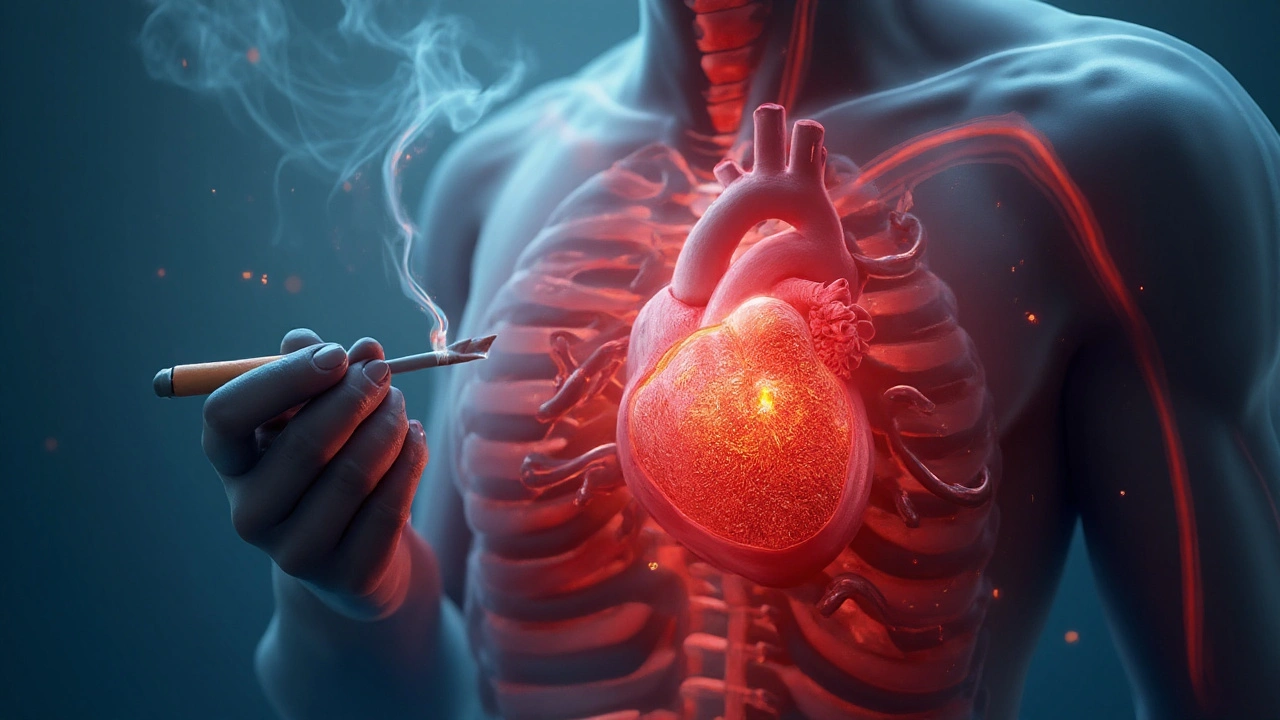If you light up every day, your heart is working harder than it should. The moment you decide to quit, you start giving it a break. In this guide we’ll show you exactly how quitting smoking lowers heart disease risk, what to expect in the first weeks, and a few easy tricks to keep you on track.
Every puff sends nicotine, carbon monoxide, and thousands of chemicals into your bloodstream. Those chemicals raise blood pressure, tighten arteries, and make blood clot more easily. The result? A higher chance of heart attacks, strokes, and chronic heart failure. Even if you’ve smoked for years, your heart can recover once you stop.
Within 20 minutes your heart rate drops back to normal. After 12 hours carbon monoxide levels fall, letting blood carry more oxygen. In two weeks your circulation improves and you’ll notice less shortness of breath during a walk. By three months your risk of heart attack drops about 30%, and after a year it’s roughly half of what it was when you smoked.
These milestones prove that quitting isn’t just a vague promise – it’s a measurable health upgrade. You’ll feel more energetic, sleep better, and your cholesterol often improves without any extra medication.
Now for the practical part. First, set a quit date within the next two weeks. Mark it on your calendar and tell friends or family so they can cheer you on. Second, find a replacement for the hand‑to‑mouth habit – chew gum, sip water, or use a straw. Third, consider nicotine replacement (patches, gum, lozenges) if cravings feel overwhelming. Many people succeed with a combination of short‑term NRT and behavioral tricks.
Don’t ignore triggers. Stress, alcohol, and social gatherings can bring back the urge to smoke. Plan ahead: take a short walk when stress hits, limit drinks that make you want a cigarette, and ask friends to support you by not lighting up around you.
If you slip, don’t beat yourself up. Count it as a learning moment, identify what caused the slip, and reinforce your plan. Most quitters try a few times before they stick. Each attempt gets you closer to success because you’re building stronger habits.
Finally, track your progress. Write down how many days you’ve been smoke‑free, note improvements in your breathing, and celebrate milestones with something you enjoy – a movie night, a new book, or a modest treat.
Quitting smoking is the single most powerful thing you can do for your heart. The health benefits start minutes after the last cigarette and keep growing for years. Ready to protect your heart? Pick a quit date today and follow these steps – your future self will thank you.

Discover how smoking drives coronary artery disease, the benefits of quitting, and proven strategies to protect your heart.
read more